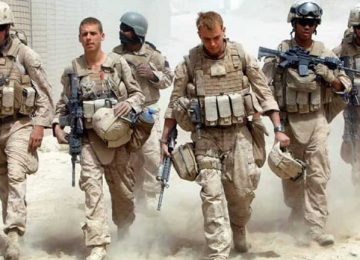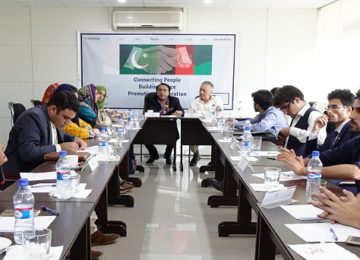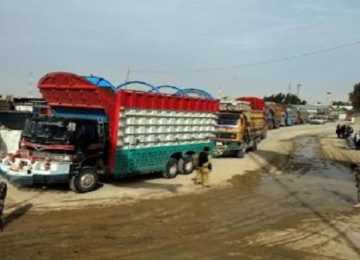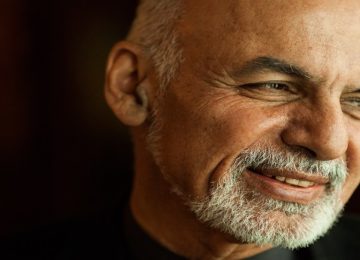January 11, 2019.
US President Donald Trump’s announcement of the US troops’ withdrawal from Afghanistan has sent everyone into a frenzy. Partially because no one anticipated the announcement by the Trump administration this early and secondly no one was prepared for what could come after the storm has settled.
Scheduled for the early months of the New Year, Trump’s order does not come with a complete plan.
Elections in Afghanistan have reportedly been postponed. This is because the power struggle between the angered Afghan government, which was certain to pull through this election, has been left out in the cold by its American counterpart.
Therefore, the Taliban, in this situation, sees a clear victory. With the current Afghan government left without support and the US pulling out its troops, the militant group has gained a political edge in wake of the ongoing peace talks.
The situation on ground is more perplexed than a simple pull out.
But have the Taliban transformed in the recent years?
Irrespective of controlling a major chunk of the country, the group remains close to its interpretation of religion and governance. To improve the country’s situation, they will require more minds than guns.
The abrupt troops’ withdrawal will leave security loopholes for Afghanistan and also Pakistan. Pakistan is in the rush to complete its border fencing with Afghanistan due to the threats that might emerge in case the US does withdraw its forces.
But the US has no plan on how to effectively assist in transferring the government from one group to the other. The Taliban still use force to score their strategic points. Therefore, chances of another civil war in Afghanistan are looming again. Such a situation might put a complete end to the Afghan peace process.
Within the Trump administration, the plan has drawn divided opinions with Erik Prince’s private security firm pushing his privatization plan forward. In his recent interview, Trump alluded to the regional players around Kabul to play an active role in Afghanistan and fight the Taliban. Trump’s statement is marred with contradiction itself. The fact remains – Taliban remain, for many, the sole peacemakers or breakers in Afghanistan who do not need regional influencers.
The group has no specific modus operandi in governance or war, but their forceful tactics kept them in control of areas where the locals backed the government in Kabul. The current Taliban comprises of both radical elder members along with the educated but religiously stern younger members.
However, with another chance to form a government in Afghanistan, the Taliban “might” reconsider their ways. Their stronghold in the capital of a sovereign state can invigorate the group’s fraction spread across the rest of the world.
This means that Pakistan should be prepared to counter the TTP, whose loyalty may shift to Kabul. Pakistan’s Afghan policy suffered mistrust and lack of cooperation when Pakistan launched its military operations and refrained from commenting on the US invasion of Afghanistan. Taliban’s de-radicalization should have been a priority for the US, but its presence in Afghanistan futher pushed the group’s militant tendencies. Moreover, International NGOs have also become dependent on Taliban to resume their services, working for the betterment of the Afghan women and children who have suffered the most.
The US is struggling to keep the Taliban on the negotiating table. The group refused to meet for the fourth (official) peace talks in Saudi Arabia and changed the location to Qatar. Even then, Taliban pulled out from the peace talk over “agenda disagreement. Although the US and Pakistan have been trying to bring the Afghan government and Taliban on talking terms, an attempt that seems to be failing.
The US is struggling to keep the Taliban on the negotiating table. The group refused to meet for the fourth (official) peace talks in Saudi Arabia which will now take place in Qatar. The situation in Afghanistan is as vague as it was some 40 years ago.
What started as a struggle against the Soviets has turned into the scuffle against foreign troops stationed in Afghanistan. A leaked document drafted by the RAND Corporation gives some insight to the Afghan Peace Plan which gives a hint of the events unfolding in the country. No matter how premeditated, history is a reminder that the situation in Afghanistan has never worked out as planned. Additionally, withdrawal of the troops from Afghanistan is solely dependent on both the governments in Kabul and Washington. The ceasefire however demands a long term cooperation between the Taliban and other groups.
The RAND document also states the Taliban will announce renunciation of all links with the terrorist groups. Given the validation of the RAND document and the meetings taking place between the Taliban with US officials, the group might have developed a sense of diplomacy over the years but it might continue to practice the use of force when and where diplomacy may fail.
Despite being involved in deadly attacks, political expedience for Taliban has kept it from being listed in the Designated Foreign Terrorist Organizations, while the TTP is in the list. The TTP for Pakistan has been what the Taliban has been for Afghanistan, but without the US expedience due to its own interests. The US wants regional players to play their part in bringing back Afghanistan to its feet but also wants to shun away from taking the responsibility it long promised to deliver.
It is perhaps a little early to see through the Afghan peace process. The troops remain stationed in Afghanistan and the current government has postponed the general elections showing attempts to remain in control as a majority. As for the locals, they will support those whoever promises to provide the basics necessities of life.
Peace and the Taliban are not synonyms to each other. The group may not be in the US designated list but is guilty of the crimes in and outside Afghanistan. Taliban’s other affiliates –such as the Al-Qaida – may sneak back into the mainstream through their afflictions within the Taliban. They can also become possible stakeholders, however, everyone seems to have forgotten about such groups in the country.
The Taliban is firm in its demands and the US is not in the position to refuse them or put its troops in a limbo. For Pakistan, the options are limited and tricky as it does not want to repeat the shortsightedness of its past policies.
Taliban’s return to power can have a ripple effect for those involved directly or indirectly. Pakistan may be able to fence some of its problems, but the rest will require an upper hand in Afghanistan’s peace process. Moreover, Pakistan has limited cards to play but if played nattily, it has a chance of resetting its relationship with Afghanistan. With India and Iran thinking of establishing links with the Taliban, Pakistan must maintain its watch.
Even though it cannot be stated with certainty as to what might happen next in Afghanistan, however, the decades long conflict must see an end. Afghanistan deserves a chance to experience a peaceful time after decades of conflict and instability.
The author Aisha Saeed is an independent analyst on media and foreign policy. She tweets @MsAishaK.








